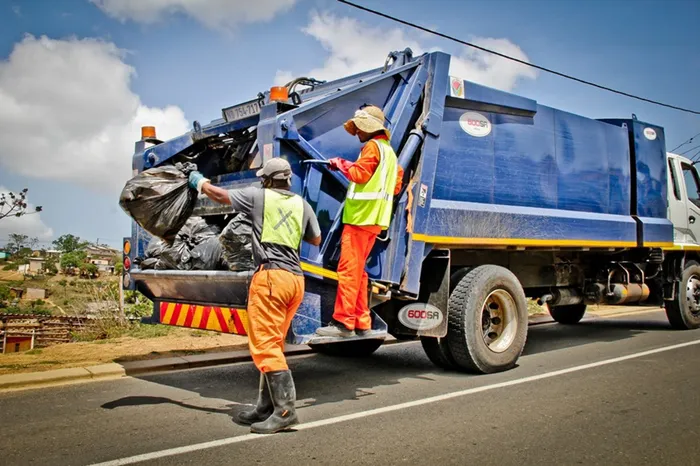Durban's R1.75 billion strategy to revolutionise solid waste management

The eThekwini Municipality Cleansing and Solid Waste Unit (CSW) is devising a turnaround strategy in alignment with the National Treasury's Metro Trading Services Reform (MTSR) framework.
Image: File
The eThekwini Municipality's Cleansing and Solid Waste (CSW) unit reported that it was at a critical inflection point and is now developing a turnaround strategy for it.
This strategy is expected to cost approximately R1.75 billion over 10 years, with funding mobilised through reprioritisation, cost optimisation, and leveraging national reform-linked grants, the municipality stated in a report to the eThekwini Municipality Executive Committee (EXCO) recently.
The CSW reported that mounting financial deficits, declining infrastructure reliability, and growing service delivery backlogs have rendered the current solid waste business model unsustainable.
The municipality stated that the turnaround strategy for the CSW was developed in alignment with the National Treasury's Metro Trading Services Reform (MTSR) framework.
This is expected to transform CSW into a performance-driven, financially viable, and environmentally resilient municipal trading service with a single point of management accountability.
The strategy identifies a clear trajectory for reform under the three-phase national model: stabilise, recover, and transform.
The municipality explained in the report that the initial phase targets operational recovery and institutional clarity, while subsequent phases focus on cost-efficiency, financial sustainability, circular economy readiness, and customer trust.
The municipality has found that the current waste service value chain is highly linear, with over 98% of waste landfilled and minimal diversion. Other findings were:
- The CSW's average Operating Cost Coverage Ratio (OCCR) is 0.71, significantly below the sustainability threshold of 1.2. This indicates structural revenue shortfalls from high operational costs relative to tariffs.
- Landfill closures and aging fleet infrastructure are driving up the city's three major cost centres: overtime, maintenance, and fleet hire.
- Informal settlements and dense urban nodes remain underserviced, exacerbating illegal dumping and public health risks.
- Data fragmentation, weak asset management systems, and outdated tariff models impair cost recovery and operational optimisation.
- Institutional form lacks a single point of accountability, leading to fragmented leadership, diluted performance, poor consequence management, and misalignment of the shift system versus the standard of services.
According to the municipality, the strategy introduces seven strategic focus areas (SFAs), each aligned with specific goals and causes of underperformance. They are:
- Single Point of Accountability (SPoMA) - Establish a dedicated, ringfenced utility structure for CSW with clear leadership and delegated authority.
- Fleet and logistics optimisation - Renew and optimise fleet through predictive maintenance.
- Route planning software and pooled vehicle reserves.
- Financial sustainability and ringfencing - Introduce activity-based costing, tariff reform, and revenue protection measures.
- Circular economy and diversion pathways - Expand recycling, establish MRFs, and integrate informal waste pickers to reduce landfill dependence.
- Data and information systems - Deploy an integrated waste information system to drive evidence-based decision-making.
- Environmental risk and compliance - Modernise landfill infrastructure and implement leachate and gas management to reduce environmental liabilities.
- Customer engagement and trust - Improve service transparency, complaint resolution, and community education to restore public confidence.
The municipality has a 10-year implementation roadmap embedded within the strategy, comprising 34 phased projects mapped to the strategically focused areas.
- Stabilise (Years 1-2): Core service restoration, institutional reform, data infrastructure, and financial diagnostics.
- Recover (Years 3-6): Fleet replacement, tariff reform, separation-at-source expansion, and customer engagement rollout.
- Transform (Years 7-10): Circular economy scaling, full system digitisation, and integrated asset management.
The municipality stated that the strategy marks a decisive shift toward a professionally managed, financially sustainable, and socially accountable solid waste utility.
By executing this roadmap, the eThekwini CSW will address its service delivery backlogs, strengthen institutional capacity, and re-establish public trust-delivering universal, reliable, and future-ready waste services for all residents.
Related Topics: